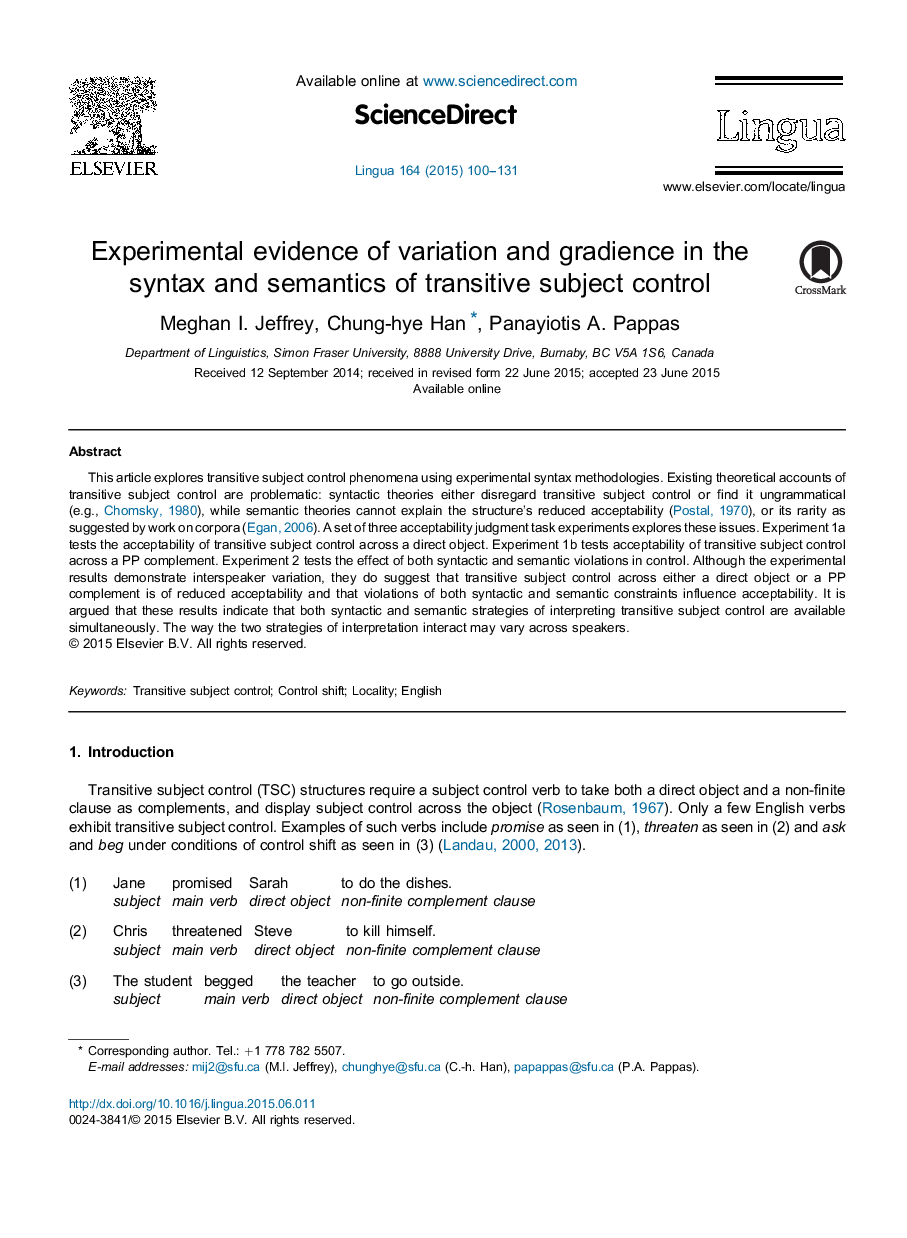| Article ID | Journal | Published Year | Pages | File Type |
|---|---|---|---|---|
| 10461110 | Lingua | 2015 | 32 Pages |
Abstract
This article explores transitive subject control phenomena using experimental syntax methodologies. Existing theoretical accounts of transitive subject control are problematic: syntactic theories either disregard transitive subject control or find it ungrammatical (e.g., Chomsky, 1980), while semantic theories cannot explain the structure's reduced acceptability (Postal, 1970), or its rarity as suggested by work on corpora (Egan, 2006). A set of three acceptability judgment task experiments explores these issues. Experiment 1a tests the acceptability of transitive subject control across a direct object. Experiment 1b tests acceptability of transitive subject control across a PP complement. Experiment 2 tests the effect of both syntactic and semantic violations in control. Although the experimental results demonstrate interspeaker variation, they do suggest that transitive subject control across either a direct object or a PP complement is of reduced acceptability and that violations of both syntactic and semantic constraints influence acceptability. It is argued that these results indicate that both syntactic and semantic strategies of interpreting transitive subject control are available simultaneously. The way the two strategies of interpretation interact may vary across speakers.
Related Topics
Social Sciences and Humanities
Arts and Humanities
Language and Linguistics
Authors
Meghan I. Jeffrey, Chung-hye Han, Panayiotis A. Pappas,
